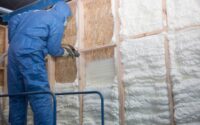Every pet owner shares a unique bond with their animal companion, cherishing their affection, mischiefs, and even their tantrums. Your pet is a part of your family, and maintaining their health is just as significant as any other family member’s. One major aspect of maintaining your pet’s health is regular vet check-ups.
Frequency of Pet Vet Check-ups
Regular veterinary check-ups are crucial for maintaining the overall health and well-being of pets. Here’s a bit more detail:
- Puppies and Kittens: Young animals, especially puppies and kittens, require more frequent vet visits. This is because they undergo rapid growth and development, and they also need a series of vaccinations to build immunity. Visits may be recommended every 3-4 weeks until they are around 16 weeks old.
- Adult Dogs and Cats: For healthy adult dogs and cats, an annual veterinary visit is generally sufficient. During these visits, the vet can perform a thorough physical examination, administer any necessary vaccinations, and discuss preventive care, such as dental care and parasite control.
- Senior Pets: Senior pets (usually around seven years and older, but this can vary by species and breed) may need more frequent check-ups. These visits allow the vet to monitor and manage age-related health issues, such as arthritis, dental problems, and organ function.
- Pets with Health Issues: Pets with chronic health conditions may require more frequent check-ups and monitoring. The vet will work closely with the pet owner to develop a customized healthcare plan based on the specific needs of the pet.
- Dental Check-ups: Dental health is a crucial aspect of overall well-being. Regular dental check-ups and cleanings may be recommended, and dental care should also be part of the routine at home.
- Nutritional Consultations: Regular discussions about nutrition are essential to ensure that your pet is receiving the appropriate diet for their age, size, and health status.
It’s important to note that these are general guidelines, and the frequency of vet visits can vary based on factors such as the individual health of the pet, lifestyle, and environmental considerations.
Youthful Pets and Vet Check-ups
Regular vet check-ups and vaccinations are crucial for the health and well-being of puppies and kittens. These early veterinary visits play a key role in ensuring that your young pets grow up healthy and strong. Here are some important points to consider:
1. Vaccinations
- Puppies and kittens receive a series of vaccinations to protect them against common and potentially deadly diseases. These vaccinations typically start at around 6-8 weeks of age and continue at intervals until they are around 16 weeks old.
- Common dog shots include those for distemper, parvovirus, hepatitis, and rabies. For cats, vaccinations may include those for feline viral rhinotracheitis, calicivirus, panleukopenia, and rabies.
- These vaccinations help build immunity and protect pets from serious illnesses that could otherwise be life-threatening.
2. Deworming
Young animals are more susceptible to intestinal parasites, and veterinarians often recommend regular deworming. Worms can cause various health issues and may even be transmitted to humans in some cases.
3. Nutrition
Proper nutrition is vital for the growth and development of young pets. Your veterinarian can guide a balanced diet suitable for your puppy or kitten’s age, breed, and health condition.
4. Behavioral Counseling
Early vet visits are an opportunity to discuss behavioral concerns and receive guidance on training and socialization. Positive reinforcement and early training can prevent unwanted behaviors as pets grow.
5. Microchipping
Consider microchipping your pet, especially if they spend time outdoors. It’s a valuable tool for reuniting lost pets with their owners.
6. Spaying/Neutering
Discuss with your veterinarian the appropriate time for spaying or neutering your pet. This can prevent unwanted behaviors, reduce the risk of certain health issues, and help control the pet population.
7. Regular Check-ups
Even after the initial series of vaccinations, it’s important to schedule regular check-ups to monitor your pet’s health. This becomes especially crucial as they transition from puppyhood or kittenhood into adulthood.
8. Emergency Preparedness
Learn about common household hazards and have an emergency plan in place. Being aware of potential dangers and knowing what to do in case of an emergency can save your pet’s life.
Necessity of Regular Vet Check-ups for Adult Pets
Regular wellness check for dogs and cats are crucial for several reasons, even if the pets appear to be in good health. Here are some compelling reasons why annual veterinary visits are necessary for adult pets:
1. Early Detection of Health Issues
Pets are adept at masking signs of illness or discomfort. Regular check-ups allow veterinarians to identify subtle changes in behavior, weight, or physical condition that might indicate underlying health problems. Early detection often leads to more effective and less costly treatments.
2. Preventive Care
Routine vet check-ups provide an opportunity for preventive care measures, such as vaccinations, parasite control, and dental care. These measures help protect pets from common diseases and conditions that can be easily prevented or managed with timely intervention.
3. Disease Prevention
Regular veterinary visits enable the veterinarian to discuss and administer vaccinations that protect pets from various contagious diseases. This is especially important for pets that interact with other animals, as it helps create a barrier against potentially serious illnesses.
4. Nutritional Guidance
Veterinarians can offer advice on a pet’s diet based on their age, breed, and health condition. Nutrition plays a vital role in maintaining overall health, and tailored guidance can help prevent obesity and other diet-related issues.
5. Behavioral Assessment
Veterinarians can assess a pet’s behavior during check-ups, addressing any concerns or changes in behavior that may be indicative of underlying health issues. Behavioral problems may also be addressed through appropriate interventions or referrals to behavior specialists.
6. Dental Care
Dental health is a crucial aspect of overall well-being. Regular vet check-ups allow for dental examinations and cleanings, helping to prevent dental diseases that can lead to pain, infection, and systemic health issues.
7. Updating Medical Records
Regular vet visits ensure that a pet’s medical records are up-to-date. This is important for tracking vaccinations, medications, and any health concerns over time. Up-to-date records are valuable in emergencies or when consulting with specialists.
Significance of Regular Senior Pet Check-ups
Regular check-ups for senior pets are of paramount importance due to the unique health challenges they face as they age. Here are some key reasons why senior pets require more frequent health check-ups, typically every six months:
1. Early Detection of Age-Related Conditions
Senior pets are more susceptible to various age-related conditions, including arthritis, diabetes, heart disease, kidney disease, and cancer. Regular check-ups allow veterinarians to monitor for these conditions and detect them at an early stage when interventions are often more effective.
2. Monitoring Chronic Conditions
Suppose a senior pet is already managing a chronic condition, such as arthritis or diabetes. In that case, regular check-ups are essential to monitor the progression of the condition and adjust treatment plans accordingly. This proactive approach can help maintain the pet’s quality of life and prevent complications.
3. Pain Management
Arthritis and other painful conditions are common in senior pets. Regular check-ups enable veterinarians to assess pain levels, adjust medications, and recommend additional pain management strategies to ensure the comfort of the aging pet.
4. Dental Health
Senior pets are prone to dental issues, including periodontal disease. Regular dental check-ups and cleanings are crucial for preventing dental problems that can lead to pain, difficulty eating, and potential systemic health issues.
5. Nutritional Needs
Aging pets often have changing nutritional requirements. Regular vet check-ups provide:
- An opportunity to discuss and adjust the pet’s diet to meet their specific needs.
- Taking into account factors such as reduced activity level.
- Metabolic changes.
- Any existing health conditions.
6. Cognitive Function Assessment
Cognitive decline, similar to dementia in humans, can affect senior pets. Regular check-ups allow veterinarians to assess cognitive function, detect signs of cognitive dysfunction syndrome (CDS), and recommend appropriate interventions to support mental well-being.
7. Weight Management
Senior pets may experience changes in metabolism and activity levels, leading to weight gain or loss. Regular monitoring of weight and body condition during check-ups helps prevent obesity-related issues and ensures that the pet maintains a healthy weight.
Knowing the Diagnostic Lab Tests for Your Pet
Diagnostic lab tests play an essential role when it comes to monitoring the health of your pet. These tests help understand your pet’s health status better and fast-track its treatment process in case of illnesses. These tests include blood tests, urine tests, fecal exams, biopsy, x-rays, and vet ultrasound in Mooresville, NC.
Conclusion
Be an informed and responsible pet owner by taking your pets for regular vet check-ups, maintaining their vaccination schedules, and understanding the importance of diagnostic tests. By doing so, you can extend your pet’s life span and enhance their quality of life. A healthy pet equals a happy pet and, ultimately, a happy you.








